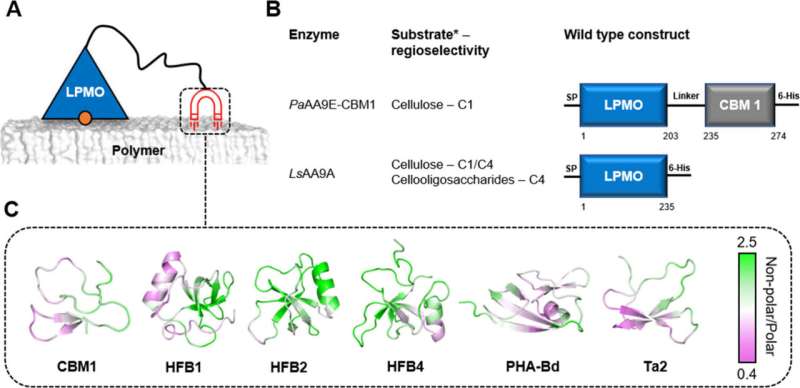Plastic pollution is a global crisis, but a team of scientists may have discovered a novel solution – reprogramming wood-degrading enzymes from fungi to break down various plastics. This innovative approach could revolutionize plastic recycling and pave the way for a more sustainable future. Plastic pollution and bioremediation are the key focus areas.

Unlocking the Power of Fungal Enzymes
Plastic pollution is a ubiquitous problem, with plastic waste accumulating in the environment at an alarming rate. While efforts to reduce plastic production and improve recycling methods are underway, a team of scientists has taken a novel approach to the challenge – reprogramming wood-degrading enzymes from filamentous fungi.
These fungi are known for their ability to secrete a diverse array of enzymes, including a special class called ‘lytic polysaccharide monooxygenases’ (LPMOs). LPMOs are capable of breaking down the surface of cellulose, a recalcitrant natural polymer found in wood, making the complete degradation of this material easier. Interestingly, plastic shares some structural similarities with cellulose, which led the researchers to hypothesize that LPMOs could potentially be engineered to target plastic polymers as well.
Engineering Chimera LPMOs to Bind to Plastics
The scientists focused on modifying the LPMOs to make them capable of recognizing and binding to different types of plastics. They used industrial-scale protein engineering processes to create ‘chimera LPMOs’ – enzymes with a binding module that can latch onto plastic polymers and a catalytic module that can break down the plastic surface.
The team successfully engineered chimera LPMOs that could recognize and bind to various types of plastics, including polyhydroxyalkanoate (PHA), a biobased plastic. Some of these engineered enzymes were even able to create holes in the surface of PHA, demonstrating their potential to initiate the breakdown of plastic materials.
Towards an Enzymatic Toolkit for Plastic Biorecycling
The researchers’ next step is to evaluate the effectiveness of these chimera enzymes in breaking down different types of plastics, with the goal of selecting the most efficient ones. They plan to further engineer these enzymes and combine them into ‘enzyme cocktails’ to create a comprehensive toolkit for the biorecycling of plastics.
This innovative approach to plastic recycling could have far-reaching implications. By leveraging the natural abilities of fungal enzymes and repurposing them to target synthetic polymers, the researchers are paving the way for a more sustainable future. As we continue to grapple with the global plastic crisis, solutions like this offer hope and promise for a cleaner, greener world.
